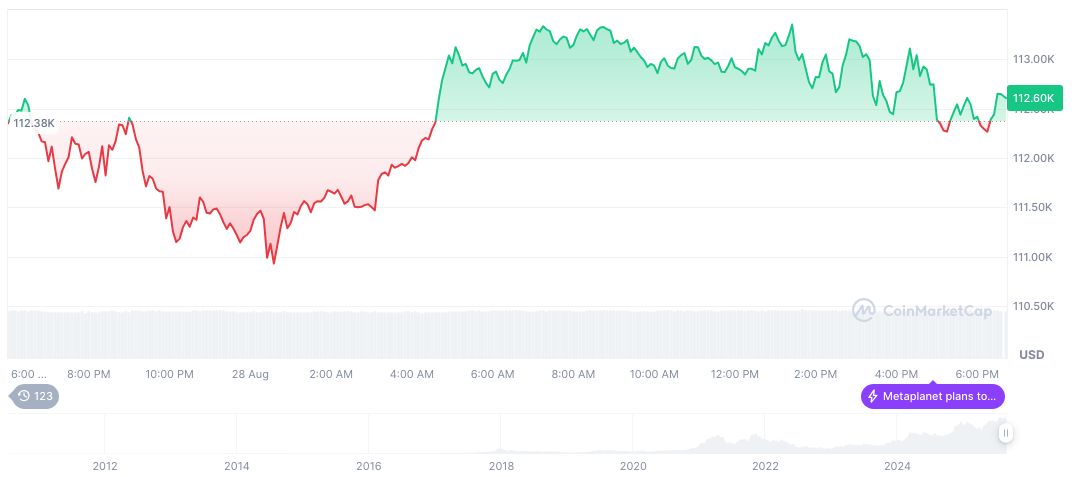- The U.S. will publish GDP data on nine blockchains by 2025.
- Aiming to enhance transparency and public access.
- Potential impact on blockchain utility for economic data feeds.
The U.S. Department of Commerce will begin publishing GDP data on nine public blockchains, including Bitcoin, starting July 2025, marking a significant endorsement of the technology.

This initiative could drastically enhance data transparency and accessibility, potentially boosting institutional interest and utility in blockchain networks, yet immediate market impacts remain speculative.
U.S. Pioneers Blockchain Use for GDP Transparency
Howard Lutnick, the U.S. Commerce Secretary, announced the integration of GDP data on blockchain. The plan includes networks like Bitcoin and Ethereum. Supported by exchanges like Coinbase, this initiative aims to enable real-time economic data verification.
The immediate implications involve enhanced transparency regarding U.S. economic data. Public access to such information could boost trust in government-provided statistics and stimulate further blockchain technology integration.
There has been a notable reaction from the blockchain community, with Douro Labs CEO Mike Cahill highlighting the administration’s support. While detailed statements from key figures like Vitalik Buterin are awaited, the broader response has been one of interest.
First Major Nation to Embrace Blockchain for Economic Data
Did you know? Publishing U.S. GDP on a blockchain marks the first instance of a major nation using public blockchains for significant economic data, drawing interest in adopting trustless data verification processes.
Bitcoin, currently priced at $111,896.80 according to CoinMarketCap, has a market cap of formatNumber(2228188581076.54, 2) and a circulating supply of 19,912,890 BTC. It holds a market dominance of 57.62% with 24-hour trading volume of $62.53 billion, reflecting a 0.12% price change.
According to Coincu’s research, both regulatory and financial shifts might accelerate blockchain adoption for governmental data services. While direct impacts remain speculative, historical trends suggest that such movements can lead to increased blockchain utility and broader institutional interest.
| DISCLAIMER: The information on this website is provided as general market commentary and does not constitute investment advice. We encourage you to do your own research before investing. |
Source: https://coincu.com/blockchain/us-gdp-blockchain-publishing/
